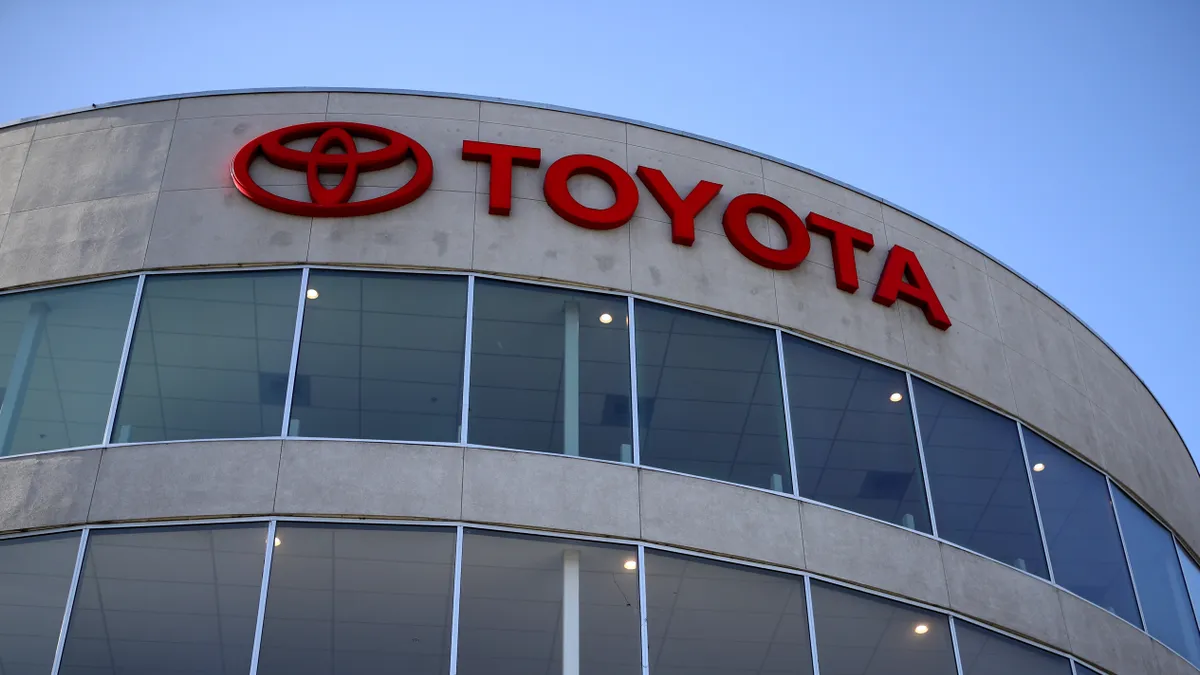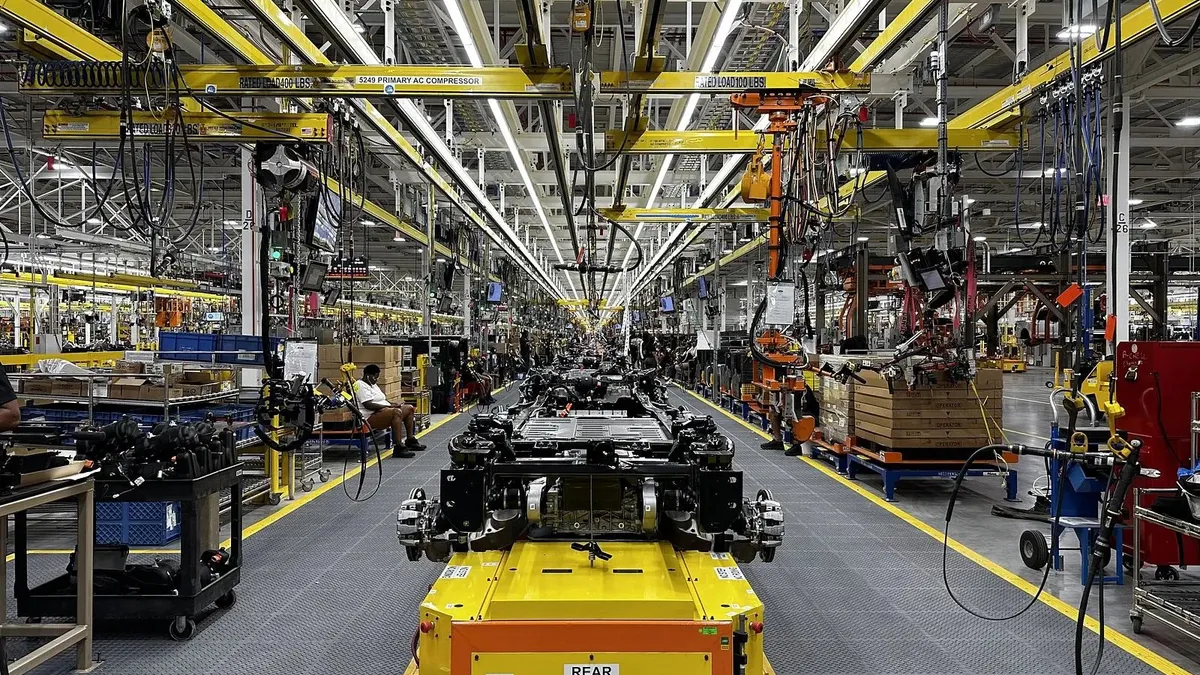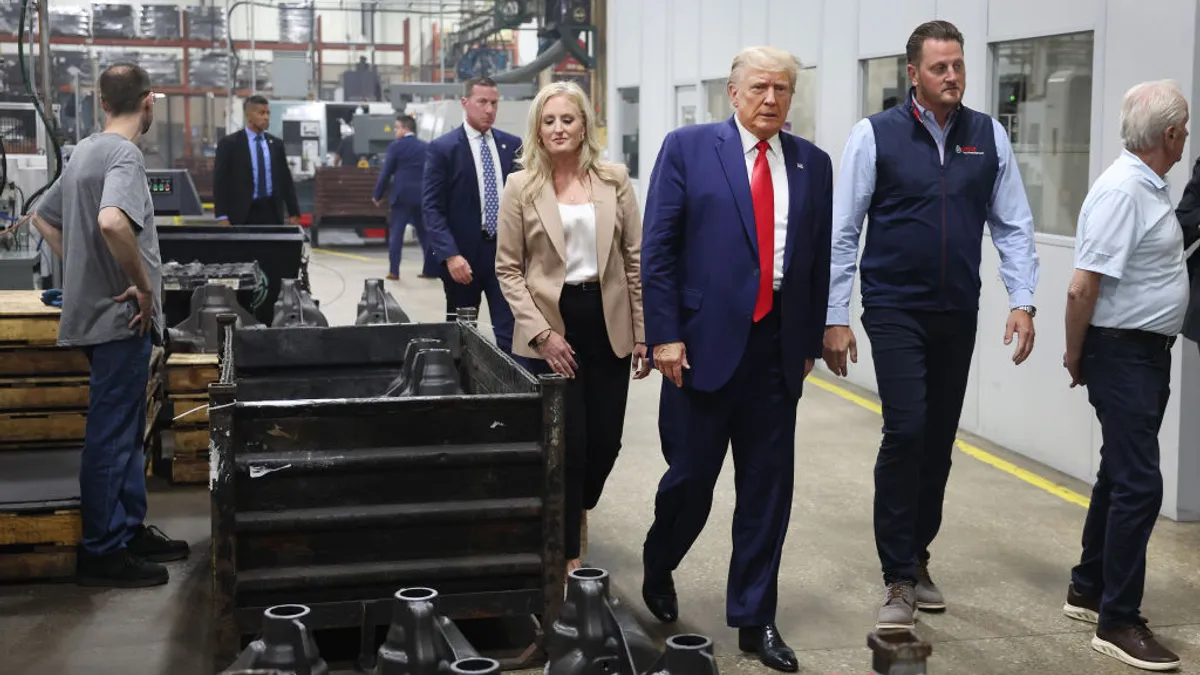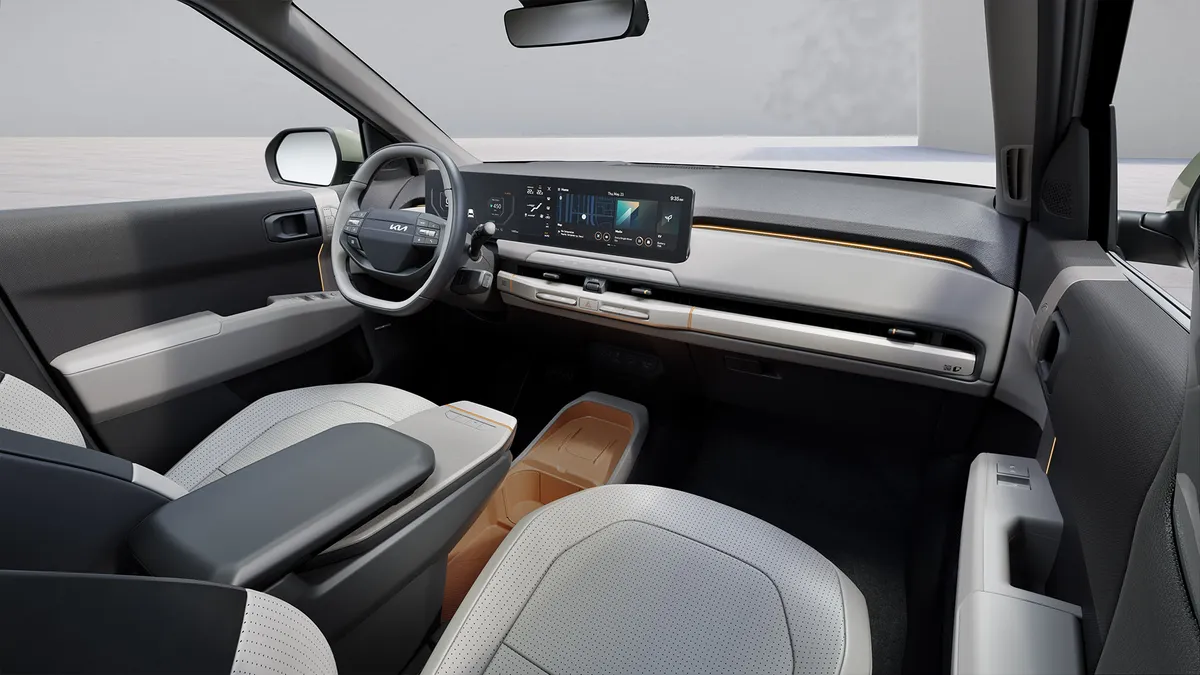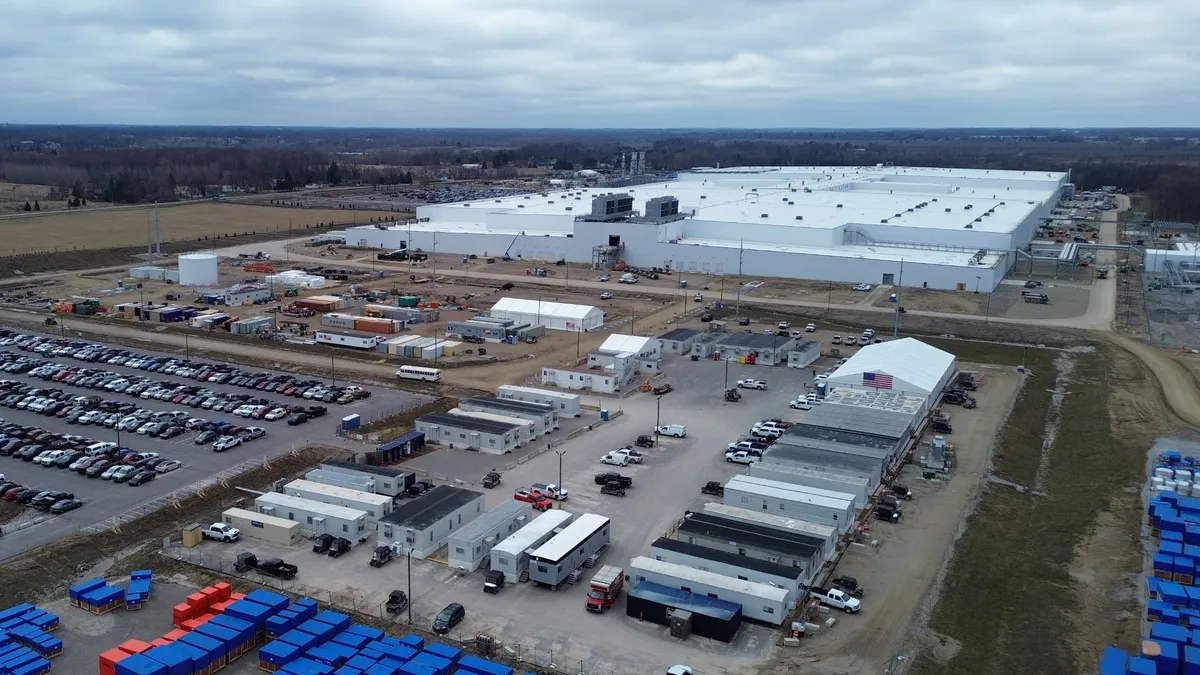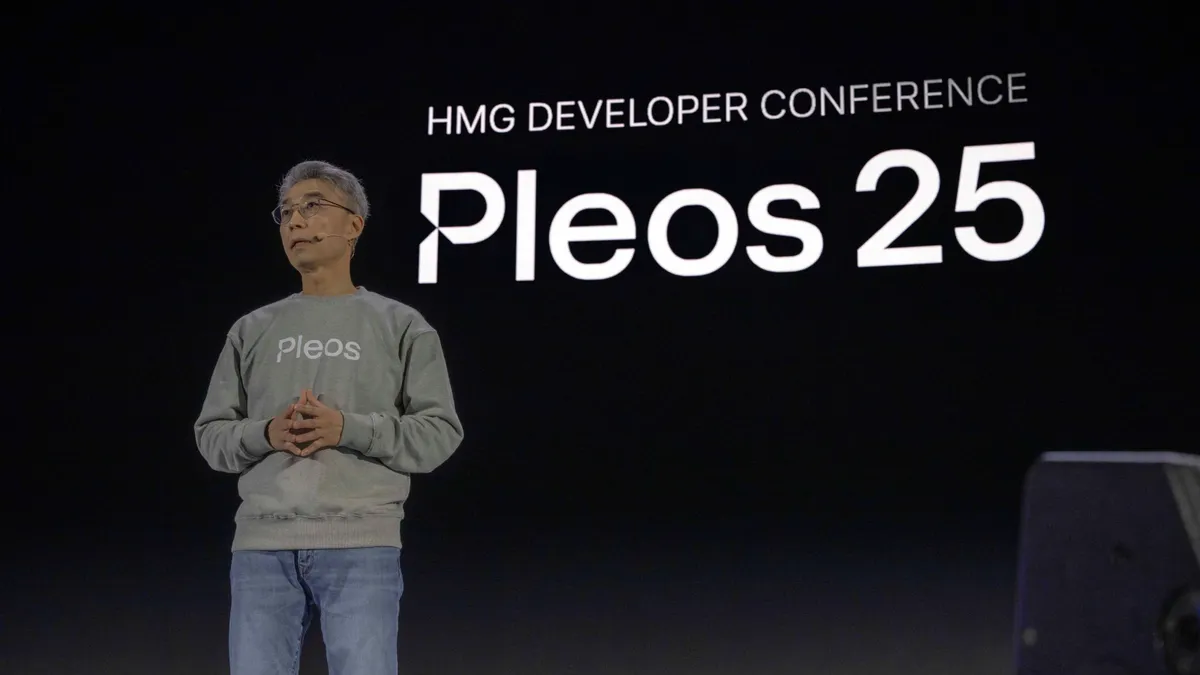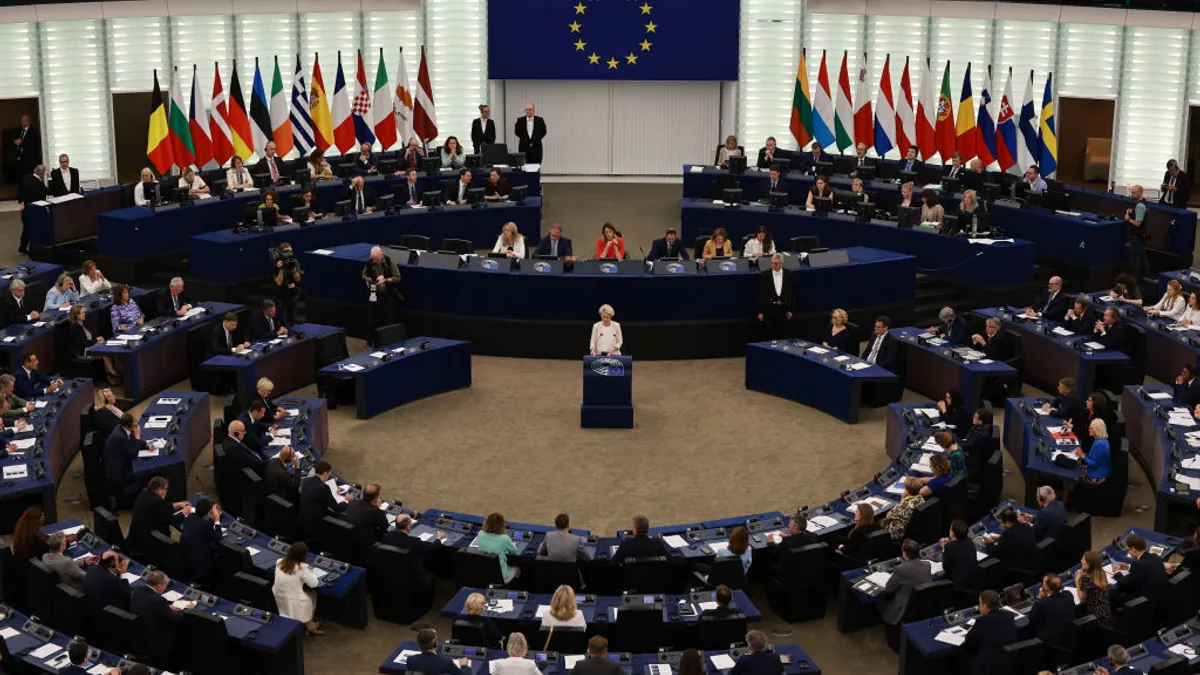The best-selling sedan in the United States is getting the hybrid treatment.
In mid-November, Toyota announced that the 2025 Toyota Camry will exclusively be available as a hybrid “as a part of Toyota’s effort to provide electrification for all,” the company said in a press release.
The 2025 Camry, the ninth generation of the popular sedan first launched in 1982, abandons the pure internal combustion engine in favor of a gas-electric powertrain. Like most hybrids from Toyota, the new Camry is not a plug-in hybrid and the internal combustion engine (as well as regenerative braking) recharges the car’s electric batteries.
The decision to offer the Camry only as a hybrid fits into Toyota’s broader portfolio of low-emissions vehicles, which currently includes more hybrids than all-electric vehicles, though conventional hybrids are not the focus of the Biden administration’s ambitious EV transition goals.
Why Toyota is changing its Camry approach
The shift is part of the company's "Beyond Zero strategy” to reach carbon neutrality, said Michael Moore, general manager of vehicle marketing at Toyota.
“The basic foundation is to give customers the choice in how they participate in electrification [and] our efforts to reduce as much carbon [emissions] as possible, as fast as possible,” said Moore. This “portfolio approach” represents hybrids, plug-in hybrids, hydrogen fuel cell electric vehicles and battery electric vehicles.
Toyota hopes offering choices among hybrids and electric vehicles will enable more people to adopt electric vehicles, Moore said. He added that the rare earth materials used to make batteries for one EV can be used to make 90 hybrids, which “will have a huge impact on our efforts to reduce carbon [emissions].”
Transitioning the Camry to a hybrid model represents “no downside for the customer,” he added, as owners of the 2025 model will benefit from the advantages of electrification like improved fuel economy, as well as experience the most powerful horsepower yet introduced in a Camry.
The news from the Japanese brand fits into Toyota’s goal “to have low carbon approaches at every price point,” says Stephanie Valdez-Streaty, research and development director for Cox Automotive Mobility.
Other Toyota models, including the Sienna minivan and the Sequoia SUV, are also only available as conventional hybrids. The strategy has helped Toyota command the lion’s share of the hybrid market and boast the longest history of selling hybrids, cars that Valdez-Streaty said serve as “a bridge to pure battery electric.” After all, conventional hybrid owners do not need to worry about the availability of reliable charging infrastructure, which is more difficult to access for those who live in rural areas, city dwellers without driveways or garages, or those who live in apartment buildings without EV chargers.
However, it’s unlikely a battery electric Camry would be profitable for Toyota, said Arun Kumar, partner and managing director in the automotive and industrial practice at consulting firm AlixPartners. Kumar suggested the cost of “reengineering the architecture of the Camry” to a battery electric vehicle would be expensive compared to the sales Toyota would reap. Rather than serving as a bridge to battery electric, he said hybrids are purchased by a different segment of consumers than EV drivers.
“For a lot of the mass market buyers of Camrys, the price difference between the hybrid and a [battery electric vehicle] is going to be humongous,” Kumar said, and that’s a major reason such consumers would prefer a hybrid. Instead of shifting current car models to electric, he said Toyota’s broader strategy "is to be building different architectures for EVs [under] different nameplates,” and launching technologically sophisticated cars that can compete with Tesla.
Toyota catches up in electrification race
While Toyota has been committed to hybrid vehicles since the launch of the first-generation Prius in Japan in 1997, the carmaker has been slower than other companies to introduce all-electric vehicles.
Toyota currently has just one battery electric vehicle on the North American market — the bZ4X, though it is the first of seven battery electric vehicles that will eventually launch under the “bZ” name. Still, Toyota is working to catch up with other automakers in the electrification race by investing in mid-term production plans and revealing new models.
Toyota presented several EVs at the famed Japan Mobility Show car show in October, such as a battery electric pickup truck and a battery electric Land Cruiser SUV. Earlier in the year, the company announced plans for a new battery electric SUV that will begin assembly at Toyota’s Kentucky plant in 2025.
Still, as Toyota does not yet offer a suite of EVs, some critics contend that Toyota’s commitment to hybrids undermines the rapid transition to fully electric vehicles government officials say is necessary to combat climate change. A 2021 New York Times report, for example, noted that the company had lobbied Washington against strict EV standards.
“Toyota has gone from a leading position to an industry laggard,” in corporate climate policy, Danny Magill, an analyst at UK-based climate think tank InfluenceMap, told the New York Times.
Toyota has also challenged new regulations put forward by the EPA, such as a proposal to mandate more stringent tailpipe emissions standards that favor EVs. In a July comment, Toyota wrote that the proposed rule “underestimates key challenges including the scarcity of minerals to make batteries, the fact that these minerals are not mined or refined in the U.S., the inadequate infrastructure, and the high cost of [battery electric vehicles].” Instead, Toyota said that “a more effective approach to reduce more carbon sooner is to promote a multi-pathway strategy” that includes battery electric vehicles as well as hybrids and hydrogen fuel cell vehicles.
Jack Hollis, executive vice president of sales at Toyota Motor North America, defended the company's strategy as compared to the Biden administration's electrification goals during a virtual Automotive Press Association meeting, saying “the marketplace isn’t mature enough and ready enough” for a mass shift to EVs, according to CNBC. Hollis added that consumer demand isn’t yet strong enough for EVs, as such vehicles are more expensive than both pure internal combustion engine cars and hybrids.
According to a July Pew Research Center survey, nearly 4 in 10 Americans said they would likely seriously consider purchasing an electric vehicle the next time they buy a car.


